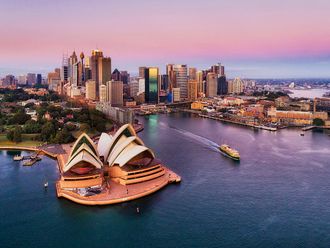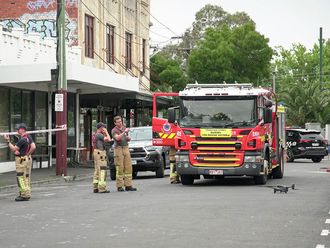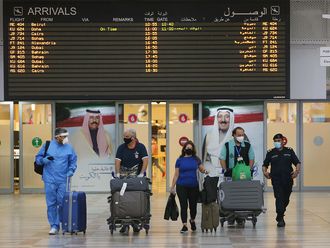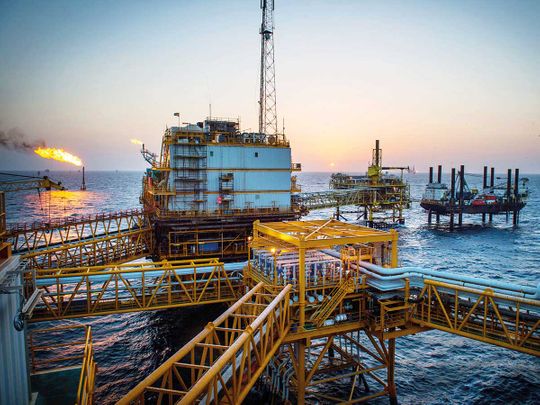
Cairo: Iran’s policies are detrimental to the Arab world, UAE Minister of State for Foreign Affairs Dr Anwar Gargash told a global security forum amid rising tensions over Tehran’s behaviour.
The UAE is fully convinced the Iranian policies are damaging to the Arab world and that the nuclear agreement with Iran was not suited for what it aims to achieve, Gargash added in a keynote address at GLOBSEC, a security and policy conference held in Bratislava, Slovakia.
Last year, US President Donald Trump withdrew from the 2015 international nuclear deal with Tehran and reimposed sanctions on Iran, citing its failure to observe obligations and its destabilising acts in the Middle East.
“The nuclear deal signed in 2015 was a genuine effort to address one of the main concerns about Iran’s behaviour, but from our perspective in the region it did not tackle this dangerous ballistic missile programme or Iran’s regional policies – which include interference in Iraq, Syria and Lebanon and support for proxy forces, including the terrorist group Hezbollah,” Gargash said.
“The JCPOA did not deliver a peaceful and normal Iran,” Gargash added, referring to the Iran nuclear deal, which was mainly aimed at stopping Iran from developing a nuclear weapon.
“Today, we are faced with escalation in the region and bellicose rhetoric from Iran – which continues to foster and use sectarianism as a means to insert itself into the Arab world,” he added.
“Our response has been peaceful. We have cooperated fully with US sanctions, which we hope will influence Iran’s behaviour for the better. We have also signalled clearly our willingness to engage with Iran in a more positive spirit. When Iran suffered floods earlier this year, we were happy to give humanitarian aid to the victims.”
Gargash’s remarks came less than a month after four commercial vessels were sabotaged off the coast of the UAE. The attacked ships included two Saudi oil tankers and a Norwegian-registered vessel
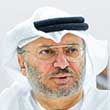
Today, we are faced with escalation in the region and bellicose rhetoric from Iran – which continues to foster and use sectarianism as a means to insert itself into the Arab world
A joint investigation by the UAE, Saudi Arabia and Norway this week revealed that a “state actor with significant operational capacity” was likely behind the assault.
Last month, explosive-laden drones, claimed by Yemen’s Iran-aligned Al Houthi militants, attacked vital oil facilities in neighbouring Saudi Arabia. The attacks came amid heightened tensions between Tehran and Washington. The US has since boosted a military buildup in the region in a deterrent to Iran.
Last month, Arab and Islamic leaders condemned Iran’s meddlesome behaviour at two crisis summits hosted in the Saudi holy city of Makkah.
Gargash told the Bratislava forum that the UAE was committed to regional stability.
$ 25 b
aid offered by UAE to nations in the regionThis commitment emanates from the UAE’s capacity as a partner to development and stability in the Arab world, according to the official.
Over the past five years, the UAE has offered $25 billion in aid to the region’s countries, he said. This accounts for more than two thirds of its overall foreign aid budget.
Elaborating on the UAE regional policy, the minister underscored the importance of stability, “good economics, good politics, and deterrent” security.
“Underpinning economics and politics must be the most basic foundation of all: the region must regain some measure of stability,” he said.
“Constant warfare engenders religious extremism. Revolutions, and radical and sudden shifts of power, rouse constant excitement and optimism among observers from outside the region. Yet for those who are on that roller-coaster, who actually have to live with the consequences, this unpredictability is far more disturbing, painful and dangerous,” he added.
“All too often, it ends by strengthening extremists and heightening internal conflict,” Gargash warned.
Several Arab countries have experienced devastating conflicts and a surge of violent militancy since the so-called Arab Spring revolts that started in 2011.






